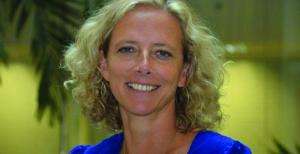More resources not more testing - sector responds to plans to replace NAAS

Published by Professional Social Work magazine, 17 January, 2022
The government has been urged to consult with the social work sector after announcing plans to scrap England’s National Assessment and Accreditation System and replace it with a new scheme.
The Social Workers Union (SWU) criticised the Department for Education (DfE), claiming it had wasted £24 million on the initiative which could have been better invested in the profession.
The non-mandatory scheme aimed to provide a post-qualifying certificate of competency tested against knowledge and skills statements for children and family social workers created in 2014.
However, it proved unpopular with low uptake at many of the 56 early adopter local authorities despite some authorities offering financial incentives to participants. Only 1,700 social workers have been accredited since it started in 2017.
The DfE said a contract, with global management consultants Mott MacDonald to deliver the programme, would be “discontinued” at the end of March.
A spokesperson added: “We will be ending the current model of NAAS to develop a revised approach that takes account of feedback from the sector and learnings from the pandemic, while retaining the same rigour, consistency and user-focus.”
This, said the spokesperson, will build on advances in digital learning made during Covid, adding: "We have seen from the significant number of social workers who have been accredited that this kind of post-qualifying system can work."
It is intended the new system will be in place by the end of the year. However, John McGowan, general secretary of SWU, said: “NAAS has been a shocking waste of £24 million that could have been better spent on investing in children’s social work.
“It’s not more testing social workers need but better work conditions to prevent high turnover and burnout rates in children’s social work.
“Social workers have already highlighted that their caseloads are unmanageable and that they are being inundated with referrals.
“NAAS did not address this. I urge the government to work with us to get the basics right in our profession before putting additional burdens and demands on workers who are already stretched to the limit.”
Maris Stratulis, national director of BASW England, added: “We welcome the ending of the current model of NAAS and expect a full and transparent evaluation of NAAS up to 2020, including financial investment and impact and measurements of success.
“Prior to any future proposals about a revised approach to additional assessment and accreditation of children and family practitioners and supervisors the sector and trade union movement must be consulted and listened to.”
Dr Robin Sen, a social work lecturer at the University of Edinburgh, called NAAS a "deeply unpopular and massively costly white elephant".
He added: "There is no reliable evidence that NAAS has improved social work practice and its introduction was premised on the unevidenced assertion that low skill amongst the child and family social work workforce in England was a substantive issue.
"In fact the evidence suggests that high caseloads, staff turnover and low morale, a lack of preventative services to help families and increases in family poverty are far more important influences on the experiences of children and families who have had a social worker during the period NAAS has operated."
Dr Sen also called upon ministers to consult with the sector about developing a scheme to replace NAAS "that is more meaningful for social workers".
Plans for NAAS were originally tabled by England’s chief social worker for children’s and families Isabelle Trowler in 2014.
A £2 million contract to develop it was awarded to a consortium including management consultants KPMG and children’s services consultancy Morning Lane Associates, a company co-owned by Trowler before taking on her current role at the DfE.
Ministers originally planned for every children’s social worker to be credited by 2020 and there was speculation it could be made mandatory.
The target, however, was dropped and the rollout scaled back after a sector backlash. Only a third of 396 respondents in a 2017 consultation backed the original proposals.
An evaluation published last year said local authorities still “found it difficult to get engagement, or commitment from staff to get involved with NAAS”.
The scheme was postponed during the pandemic.
One social worker commenting on Community Care’s news story about plans to scrap NAAS summed up the view of many practitioners, posting “good riddance”.
They added: “Seems to me that professional social workers do not need an ill-conceived accreditation scheme. We are after all professionally qualified practitioners.
"What we do need are adequate resources and realistic caseloads so that we are enabled to carry out the vital service we all endeavour to provide."
Regulator Social Work England said: “We will continue to work alongside the DfE offering advice on how to support the profession through effective learning and development.”
